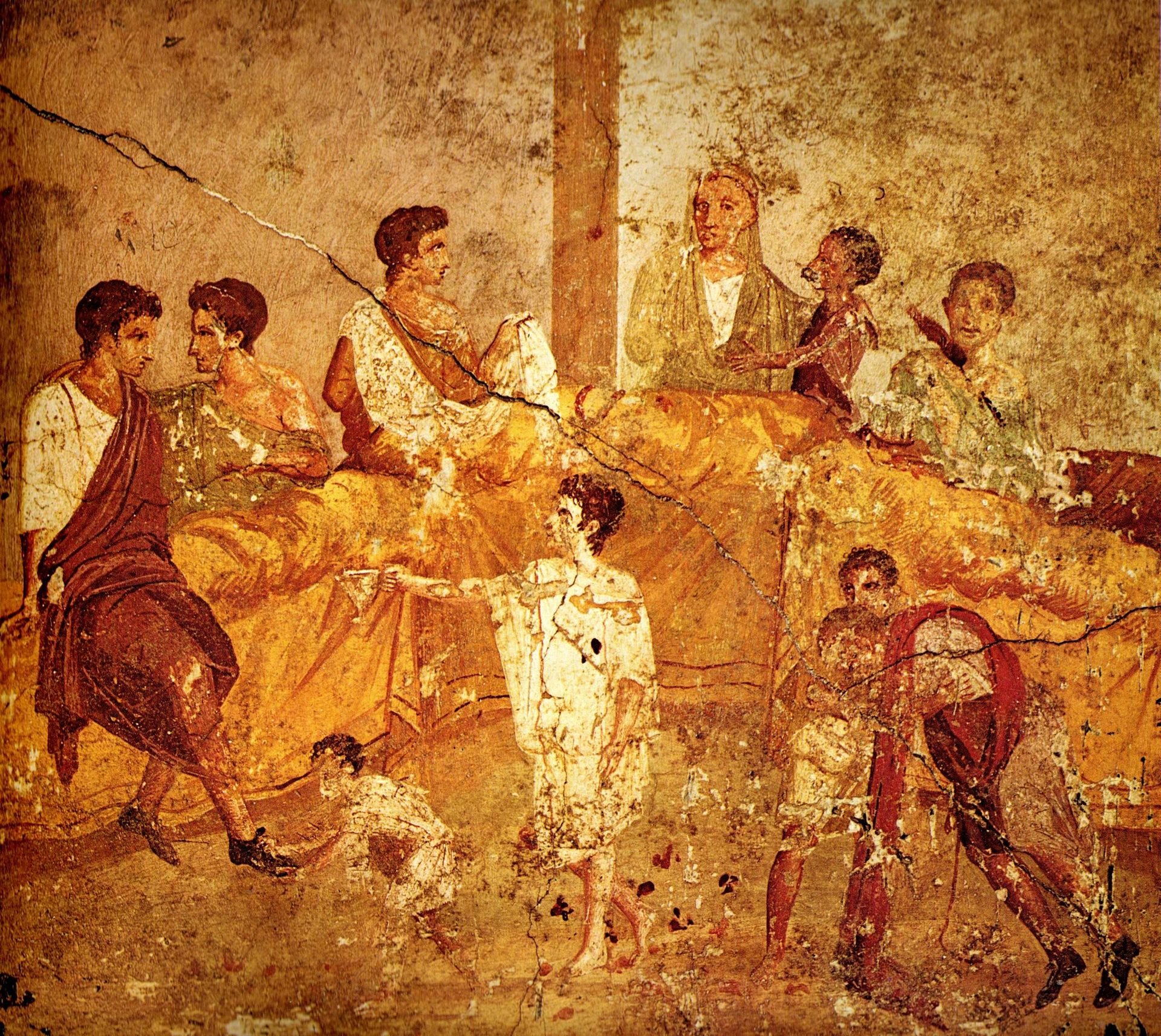 Horace delights in a rustic country dinner resembling eranos, the Greek custom of dining where each guest contributes something. A guest might contribute money, food, drink, or entertainment. Horace’s adaptation of this custom required that his guest provide...
Horace delights in a rustic country dinner resembling eranos, the Greek custom of dining where each guest contributes something. A guest might contribute money, food, drink, or entertainment. Horace’s adaptation of this custom required that his guest provide...
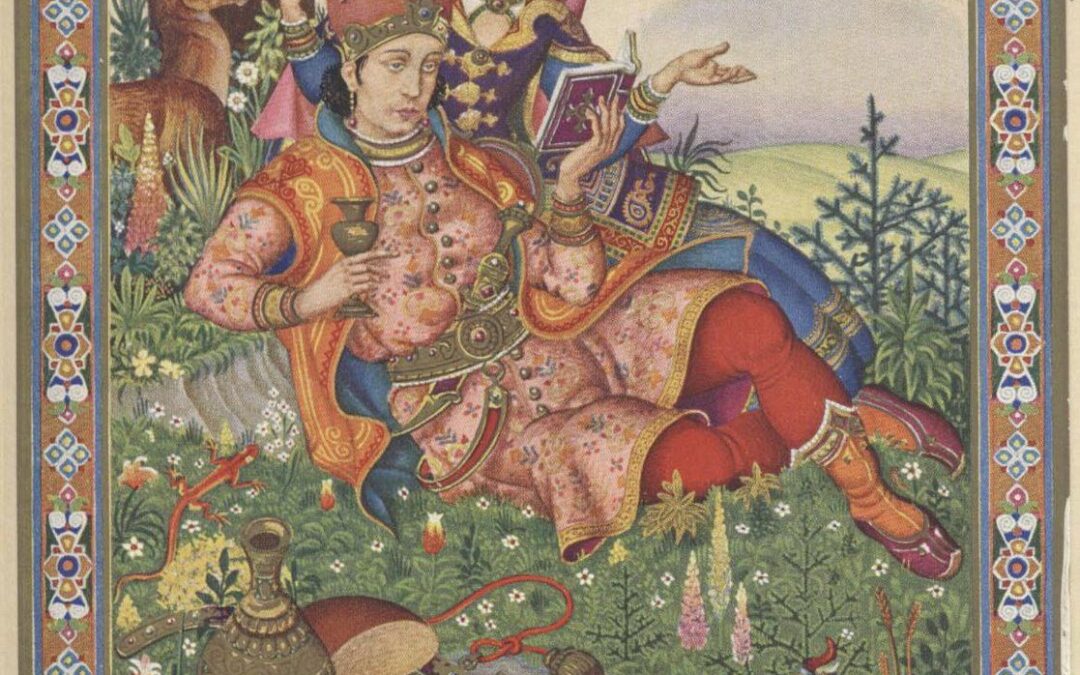 Omar Khayyam is better known for his love poems than his philosophy. His vision of lovers picnicking is in Rubáiyát “XI” in the collection of his poetry titled The Rubáiyát of Omar Khayyám, most often read in Edward Fitzgerald translation: A Book of Verses...
Omar Khayyam is better known for his love poems than his philosophy. His vision of lovers picnicking is in Rubáiyát “XI” in the collection of his poetry titled The Rubáiyát of Omar Khayyám, most often read in Edward Fitzgerald translation: A Book of Verses...
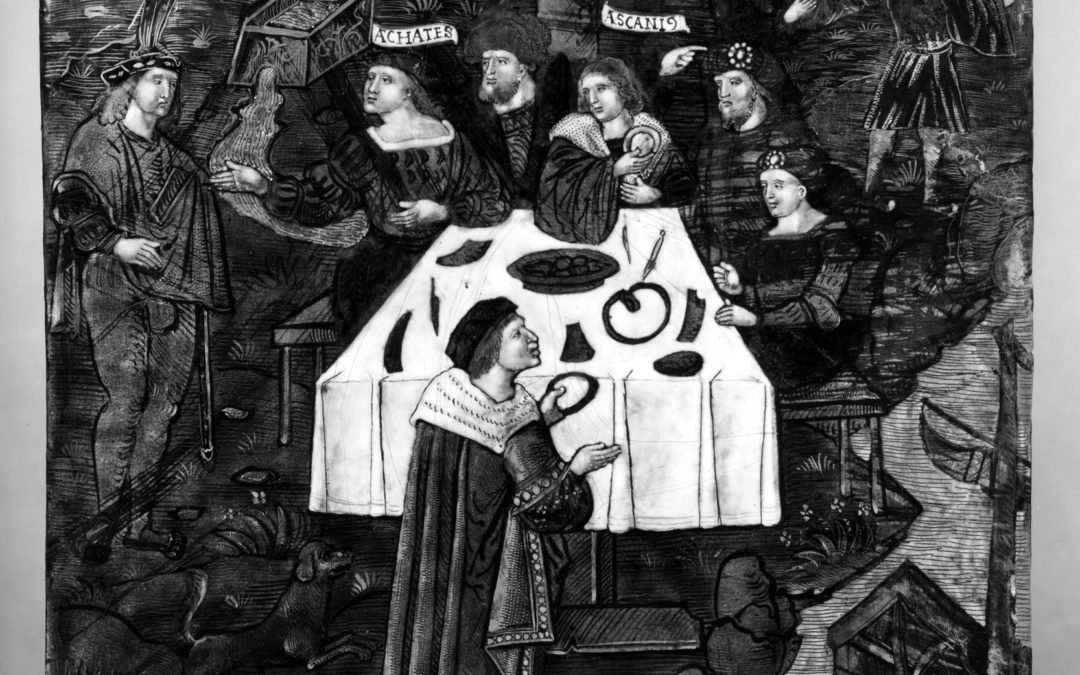 A prophecy held that Aeneas and companions would know where to build the new Troy when being desperately hungry, they ate their plates—trenchers made of thick slices of stale bread. This revelation occurs at their first meal in Latium. Virgil’s details,...
A prophecy held that Aeneas and companions would know where to build the new Troy when being desperately hungry, they ate their plates—trenchers made of thick slices of stale bread. This revelation occurs at their first meal in Latium. Virgil’s details,...
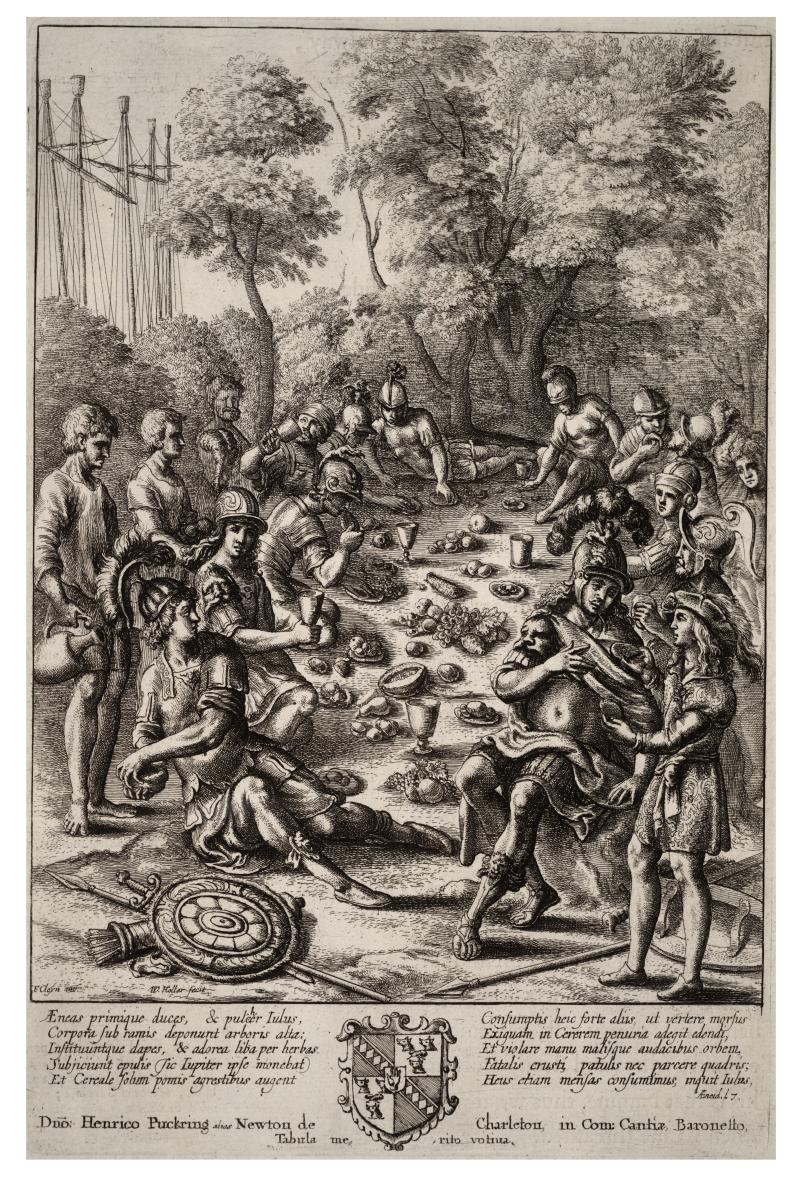 Hollar illustrates the key moment in Virgil’s Aeneid (19 CE) when Aeneas realized that he had reached the land where he would build a new city where Trojans would prosper. The chosen moment is when Aeneas and his crew bivouac in a forest clearing in Latium and...
Hollar illustrates the key moment in Virgil’s Aeneid (19 CE) when Aeneas realized that he had reached the land where he would build a new city where Trojans would prosper. The chosen moment is when Aeneas and his crew bivouac in a forest clearing in Latium and...
 Milton never uses the word picnic or any synonym but knows the concept and uses it freely for satiating Adam and Eve in Paradise before the Fall in Paradise Lost. Because they had no means of cooking, Milton supposes that Adam and Eve were inadvertent Vegans...
Goldsmith’s “Retaliation” left unfinished at his death, alludes to dining “en piquenique” with mentioning the word. Motivated for being slighted by his friends, Goldsmith decided to get even at the dinner table. Attempting to get even with slights endured from...
Milton never uses the word picnic or any synonym but knows the concept and uses it freely for satiating Adam and Eve in Paradise before the Fall in Paradise Lost. Because they had no means of cooking, Milton supposes that Adam and Eve were inadvertent Vegans...
Goldsmith’s “Retaliation” left unfinished at his death, alludes to dining “en piquenique” with mentioning the word. Motivated for being slighted by his friends, Goldsmith decided to get even at the dinner table. Attempting to get even with slights endured from...
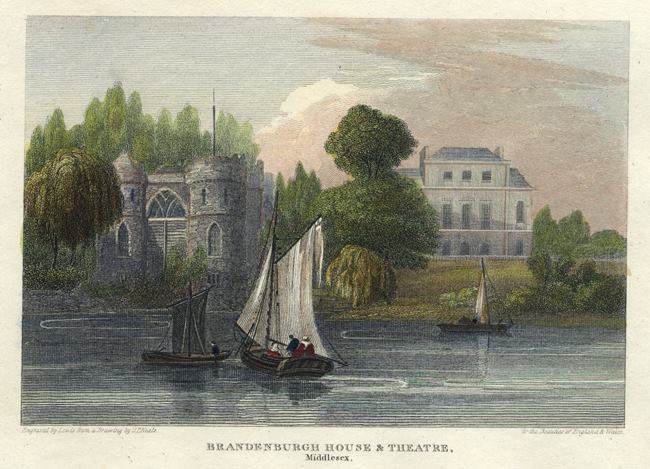 From 1780-1820, “Dilettanti,” or amateur theater aficionados, organized theater groups. Among the most passionate, Louise Craven, Margravine of Ansbach, who wrote plays, produced and acted in them, persuaded her doting husband, the Margrave of Ansbach, to...
From 1780-1820, “Dilettanti,” or amateur theater aficionados, organized theater groups. Among the most passionate, Louise Craven, Margravine of Ansbach, who wrote plays, produced and acted in them, persuaded her doting husband, the Margrave of Ansbach, to...
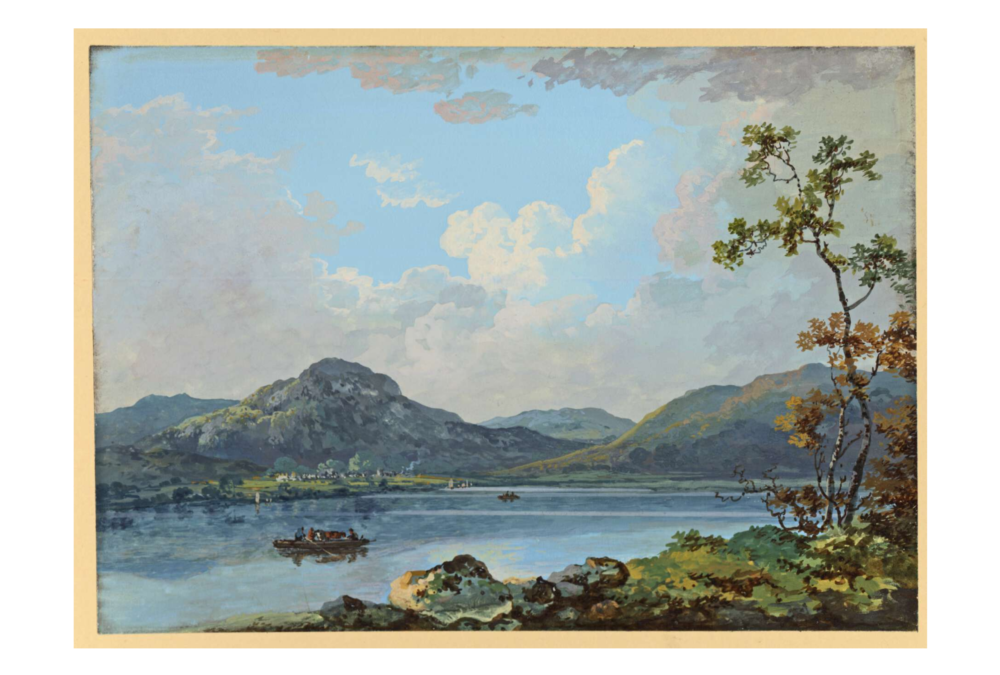 Wordsworth’s lines reveal the sudden beauty a picnicker might encounter, which triggers pleasure and spiritual ease at an evening picnic: Ah! That such beauty, varying in the light Of living nature, cannot be portrayed By words, nor by...
Wordsworth’s lines reveal the sudden beauty a picnicker might encounter, which triggers pleasure and spiritual ease at an evening picnic: Ah! That such beauty, varying in the light Of living nature, cannot be portrayed By words, nor by...
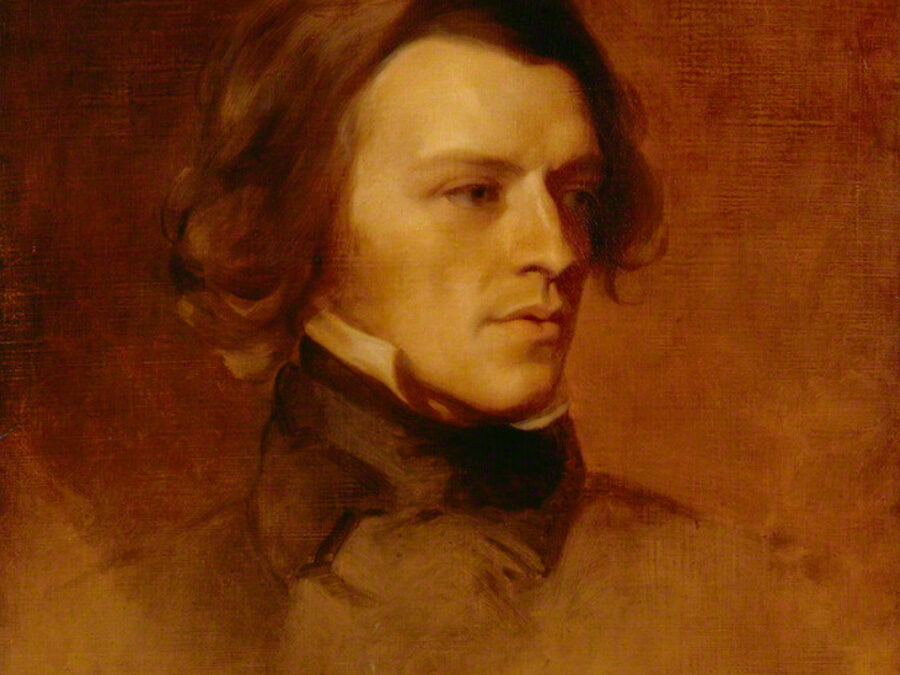 It’s one of Tennyson’s most popular shorter poems and is so sincere that readers believe Audley Court is a real place and search for it in the environs of Cambridge. The opening lines are among Tennyson’s most remembered. The Bull, the Fleece are...
It’s one of Tennyson’s most popular shorter poems and is so sincere that readers believe Audley Court is a real place and search for it in the environs of Cambridge. The opening lines are among Tennyson’s most remembered. The Bull, the Fleece are...
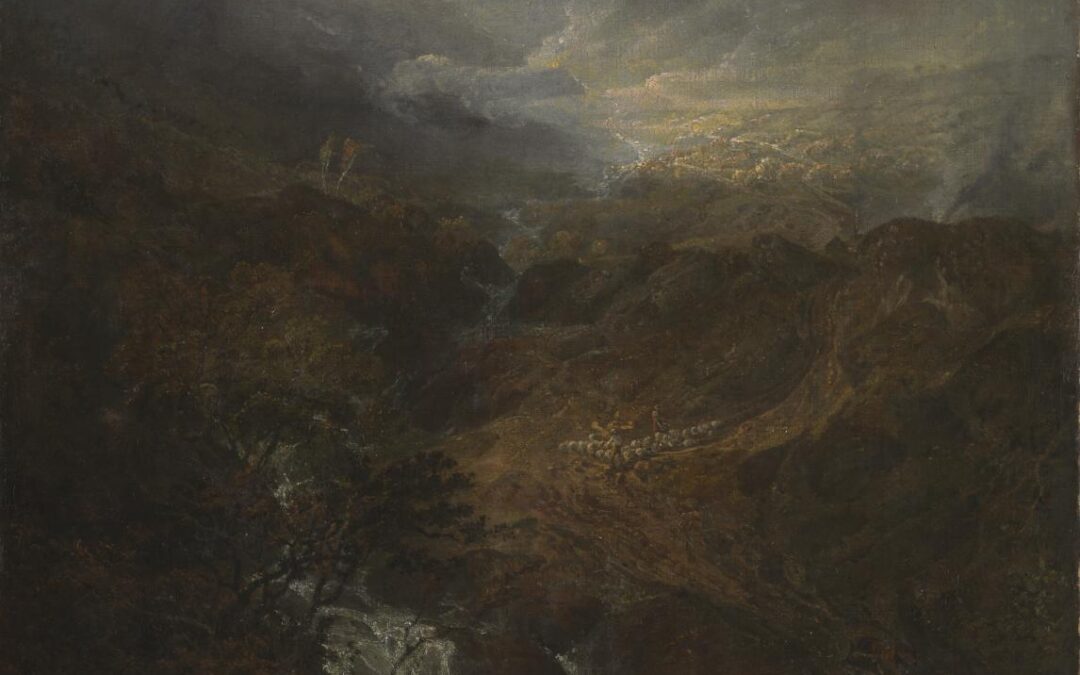 Sometime in 1798-1799, the date is unclear; Woodsworth describes a picnic in The Prelude. He does not refer to this adventure as a picnic because the word was unknown to him at this time. He probably became familiar with the word a decade later because John Wilson...
Sometime in 1798-1799, the date is unclear; Woodsworth describes a picnic in The Prelude. He does not refer to this adventure as a picnic because the word was unknown to him at this time. He probably became familiar with the word a decade later because John Wilson...










